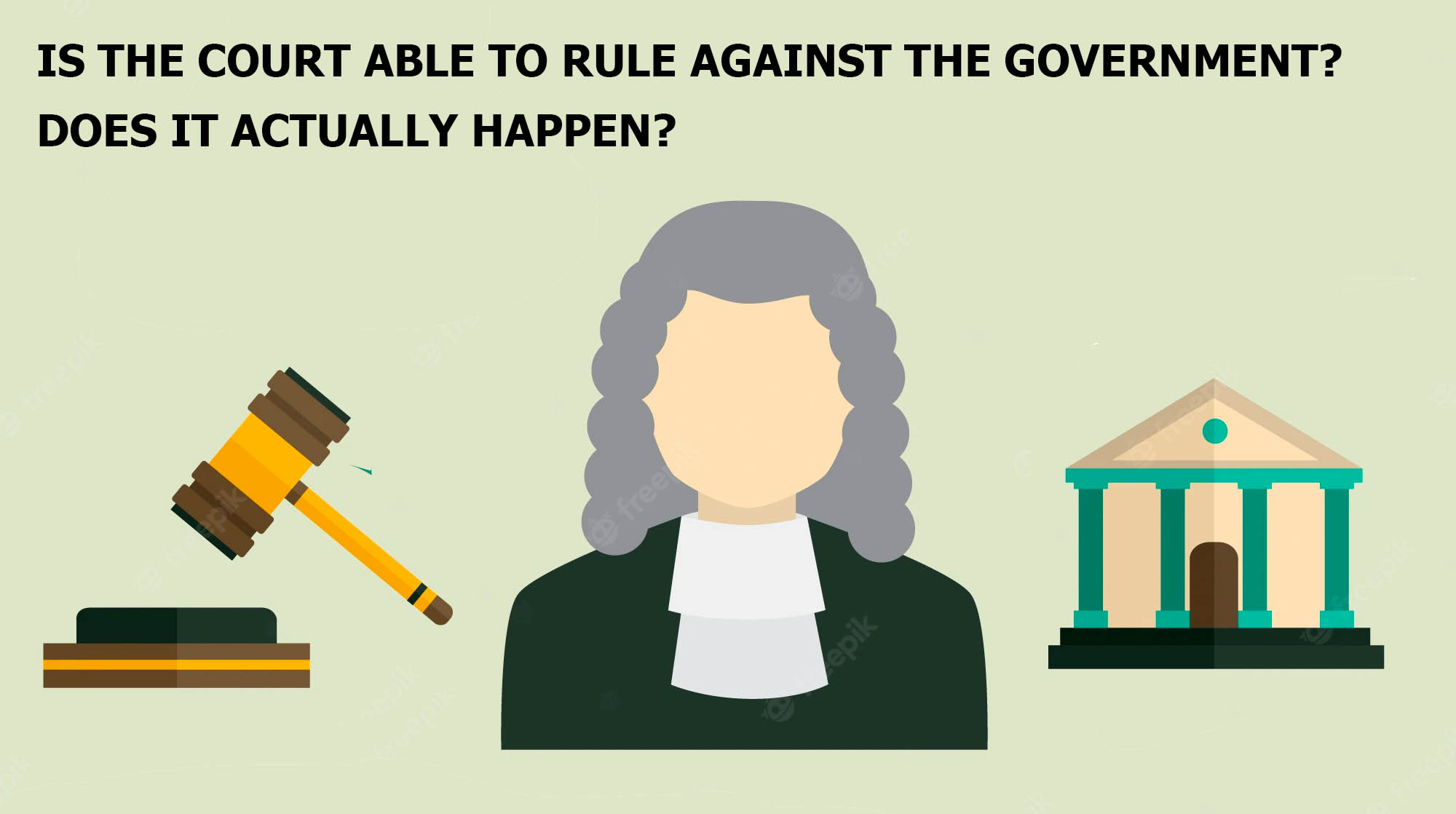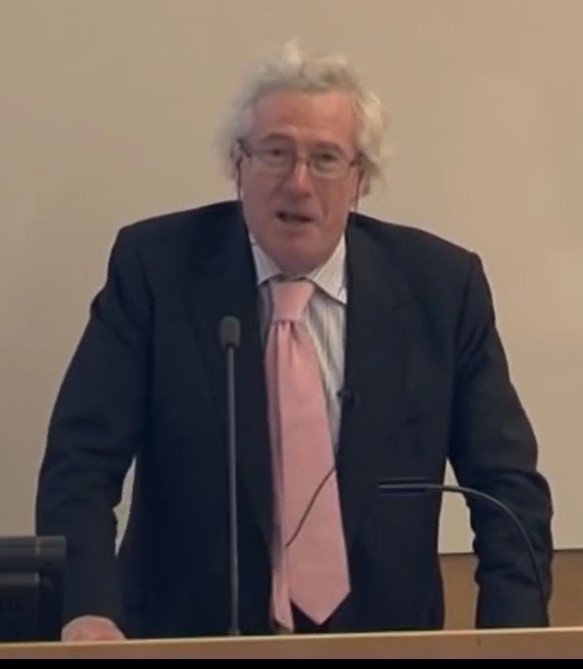The problem for Hong Kong’s critics is that our legal system works really well. One of the city’s overseas judges, Britain’s Lord (Jonathan) Sumption, told the press the bald truth, saying “as a Hong Kong judge, I serve Hong Kong people”. He added: “I must be guided by their interests, and not by the wishes of UK politicians”. Top legal professor Grenville Cross below gives a brief history of recent attempts to undermine the Hong Kong judiciary and harm the city’s celebrated “one country, two systems” policy.
SINCE HONG KONG was reunified with the motherland in 1997, its fortunes have been guided by the Basic Law, its mini-constitution. This guarantees that its capitalist system and way of life will remain unchanged for 50 years, and that it enjoys a “high degree of autonomy”.
Although the viability of the “one country, two systems” policy was doubted by some, it has proved its worth, thanks largely to its legal system. In chief justices Andrew Li, Geoffrey Ma and Andrew Cheung, the judiciary, over the past 25 years, has been guided by three outstanding jurists, who have set high standards. It has modernised itself, upheld common law values, and demonstrated its independence.
JUDICIARY STANDS UP TO GOVERNMENT
The Basic Law stipulates that the courts “shall exercise judicial power independently, free from any interference”, and judicial officers swear to “administer justice without fear or favour, self-interest or deceit”.
Since 1997, the judiciary has dispensed justice impartially and, for example, this month, it struck down as ultra vires (“not within your powers”) the health secretary’s decision to invalidate 20,000 Covid-19 vaccination certificates, and rejected the justice secretary’s objection to a King’s Counsel from London being specially admitted to represent the media tycoon, Jimmy Lai, in his forthcoming national security trial.

As elsewhere in the common law world, criminal suspects can only be convicted if prosecutors have proved their guilt beyond reasonable doubt. Since 1997, nobody has been above the law, and those prosecuted have included the city’s former chief executive, Donald Tsang, its former chief secretary, Rafael Hui, and, foreign support notwithstanding, assorted activists like Jimmy Lai, Benny Tai and Joshua Wong.
INTERNATIONAL JUDGES ARE EXTRAORDINARY FACTOR
Although, in most places, the judiciary is comprised of the country’s own nationals, China, in a remarkable concession, has allowed foreigners to sit in the city’s courts, including the Hong Kong Court of Final Appeal (HKCFA), its ultimate appellate body. This has inspired confidence, and eminent judges from other common law jurisdictions, sitting on rotation as the fifth member of the HKCFA’s five-judge panel, have enriched the city’s jurisprudence.
“The HKCFA’s judgments have been of the highest quality, and are regularly cited in other jurisdictions.”
The HKCFA’s judgments have been of the highest quality, and are regularly cited in other jurisdictions. The local judges, no slouches themselves, have benefited from the input of their overseas counterparts, and, through their joint efforts, they have earned the trust of local residents and foreign investors alike.
At present, there are ten HKCFA non-permanent judges from overseas, coming from Australia, Canada, and the United Kingdom. They include the former chief justices of Australia, Robert French, and of Canada, Beverley McLachlin, and the former president of the UK Supreme Court, Lord (Nicholas) Phillips. Their presence, however, has irked some in the West, not least because it confounds their claims that the rule of law has collapsed in Hong Kong.
INSURRECTION SYMPATHIZERS SAW LAW AS A PROBLEM
In 2019, once the insurrection erupted, its foreign sympathisers saw the judiciary as problematic. Judges were not only punishing rioters and clamping down on doxxing, but also issuing injunctions to keep the city running. Although petrol bomb attacks were launched on courts at all levels, including the HKCFA, and particular judges, including Judges Amanda Woodcock and Kwok Wai-kin, were threatened with harm to themselves and their families, the judiciary stood firm, ensuring the wheels of justice continued to turn.
This infuriated the anti-China forces, who set about trashing the judiciary’s reputation. Even before the insurrection started, they showed their hand, and, for example, on August 22, 2017, after three protesters were imprisoned by the Court of Appeal for their role in a violent unlawful assembly that left ten security guards injured, the former governor, Chris Patten, told the Financial Times the decision was “deplorable”, and another example of “Beijing tightening its grip on Hong Kong’s aspirations to remain a free society”.
CAMPAIGN TO DE-LEGITIMISE JUDICARY
This, however, was only the start of a campaign to de-legitimise the judiciary, and it later turned deadly serious. On November 6, 2019, a senior British parliamentarian, Tom Tugendhat, called for the position of the HKCFA’s British judges to be reviewed, claiming their presence suggested complicity “in a system that is undermining the rule of law”.
“Many Western countries have national security laws of their own that put the NSL in the shade.”
Tugendhat’s move came well before the enactment of the National Security Law for Hong Kong (NSL) on June 30, 2020, which was greeted with horror in the West, mostly feigned, even though it saved the city. Many Western countries have national security laws of their own that put the NSL in the shade, including the US, as the hapless Julian Assange, currently rotting in a British jail as he fights extradition to Washington on US Espionage Act charges, can attest.
Energised by the NSL, Britain’s former Conservative Party leader, Iain Duncan Smith, also weighed in on September 18, 2020, telling The Sydney Morning Herald that the future of all the overseas judges in Hong Kong needed to be reviewed as they were providing “cover to what is a totalitarian regime”. He even alleged that, whereas judges in Britain and Australia were “free to reach decisions without fear or favour”, this was “not the case in Hong Kong”, a calumny for which he naturally provided no evidence.
The US, of course, has not sat idly by. On May 3, 2022, for example, seven US Congress members called on President Joe Biden to sanction judges and prosecutors handling national security cases, in response to which the judiciary condemned a “direct infringement” of the rule of law and judicial independence.
Although the NSL was demonised in 2020, only one of the HKCFA’s overseas judges, James Spigelman, quit, citing, without elaboration, “concern” over the NSL’s “content”. Two years later, following an intense campaign to denigrate Hong Kong, two other HKCFA judges, who were still serving on the UK’s Supreme Court, Lords (Robert) Reed and (Patrick) Hodge, also resigned, after a government review, to the delight of the foreign secretary, Liz Truss.
REFUSED TO BE PUSHED AROUND
The other non-permanent judges, however, are all retired, and, as free agents, they have refused to be pushed around. Thus, for example, Robert French, who has served since 2017, said, after the NSL came in, he had no intention of resigning from the HKCFA, explaining he had “the greatest respect for the chief justice and other permanent judges of that Court, and for their commitment in maintaining its independence”.
Even more forthright was Beverley McLachlin, who joined the HKCFA in 2018. In 2021, after accepting a new 3-year appointment, she said “the Court is completely independent, functioning in the way I was used to in Canada”, adding “there’s no government influence, and, if there were, I wouldn’t be there”.
It is, however, Britain’s Lord (Jonathan) Sumption, who has served the HKCFA since 2019, who has most effectively shattered the West’s myths. In 2021, he told The Times that the calls for British judges to withdraw were designed “to pressure Beijing to change its position on democracy”, that the NSL contained “guarantees of human rights”, and that the overseas judges “will serve the cause of justice better by participating in the work of Hong Kong’s courts”. Then, in a devastating rebuke to the British government, he declared that, “as a Hong Kong judge, I serve Hong Kong people”, and that “I must be guided by their interests, and not by the wishes of UK politicians”.

UNCOMFORTABLE TRUTH
Sumption’s reference to “human rights” flagged up an uncomfortable truth for the West. In contrast, for example, to Britain’s national security legislation, the NSL stipulates that “human rights shall be respected and protected” in its application, and that the International Covenant on Civil and Political Rights, that contains the fair trial guarantees, “shall be protected in accordance with the law”. Human rights, therefore, are front and center of the NSL, and this is clearly one of the reasons the overseas judges have stuck with the HKCFA.
On June 25, 2022, moreover, when reflecting on the last 25 years, the first post-1997 chief justice, Andrew Li, said “I can state that during this period, there has been no instance of interference with how a judge should adjudicate, and there has been no instance of interference with the process of judicial appointment”. This was reassuring for everybody who values the truth, and it gave the lie to those accusing China of violating its commitments.
PRESIDENT BACKS SYSTEM
The “one country, two systems” policy was always experimental, and many of China’s antagonists wanted it to fail, knowing this would reflect badly on Beijing. It has, however, served Hong Kong well, and, having been severely tested, it has emerged even stronger.
This was undoubtedly why, when he visited the city on July 1, President Xi Jinping said the policy “must be adhered to over the long term”, meaning after 2047, and he also highlighted the success of a judiciary that “exercises judicial power independently”.
With their future now assured, Hong Kong’s residents can see the shape of things to come. The common law system is secure, and, despite the best efforts of foreign saboteurs, the judiciary will continue to uphold their way of life. Once Hong Kong’s greater role in national development and global connectivity are also factored in, there is every reason to suppose its best days are yet to come.
Grenville Cross, a former director of public prosecutions in Hong Kong, is now a popular writer and commentator on local affairs, as well being a professor of law
This article was also published in P&I. Image at the top by Giammarco on Unsplash

